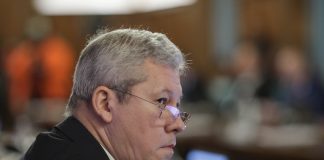The expansion of NATO is the result of democratic decisions and is not a gesture against Russia, declared, on Tuesday, the Secretary General of NATO, Jens Stoltenberg, in an intervention at the Aspen – GMF Bucharest Forum, which takes place in Bucharest, according to Agerpres.
The high official is in Romania to preside over the NATO Foreign ministers’ meeting, which takes place on Tuesday and Wednesday at the Parliament Palace.
NATO expansion (…) occurs when free and independent nations believe they are safer with others. And the Russian war suggested that if a state becomes a NATO ally, this is a challenge, Stoltenberg pointed out.
He gave, in this sense, the example of his country.
I come from Norway, a country that has a border with Russia. At the beginning of NATO, Norway was the only allied country that had a border with Russia. Before that, in 1949, Russia had conveyed that it was simply unacceptable for Norway to become a NATO member, that it would have been a provocation. It was not a challenge, it was about the free and democratic will of the Norwegians to be part of NATO. And I am glad that the founding members from Washington, Paris, London and others agreed, Stoltenberg recalled.
Furthermore, the Secretary General of NATO said that „the same thing happened when Lithuania and Latvia became members, when Romania became a NATO member”.
NATO did not force Romania to become part of the Alliance. Romania wanted this, in the context of free and independent elections. It had a democratically elected government that wanted to be part of NATO. I respect Romania’s will to be part of NATO, and president Putin cannot deny sovereign nations the right to make their own sovereign decisions. They are not a threat to Russia, but rather he does not understand what free and independent nations can do and I think he is afraid of democracy and freedom. This is his great challenge and the reason why he invaded Ukraine,” Stoltenberg pointed out.
Ukraine was never a threat to Russia, and Russia was a threat to Ukraine. (Russia – n.r.) annexed Crimea in 2014 and used their forces to control the eastern part of Donbas, which is within the borders of Ukraine, Jens Stoltenberg said.
Agerpres




